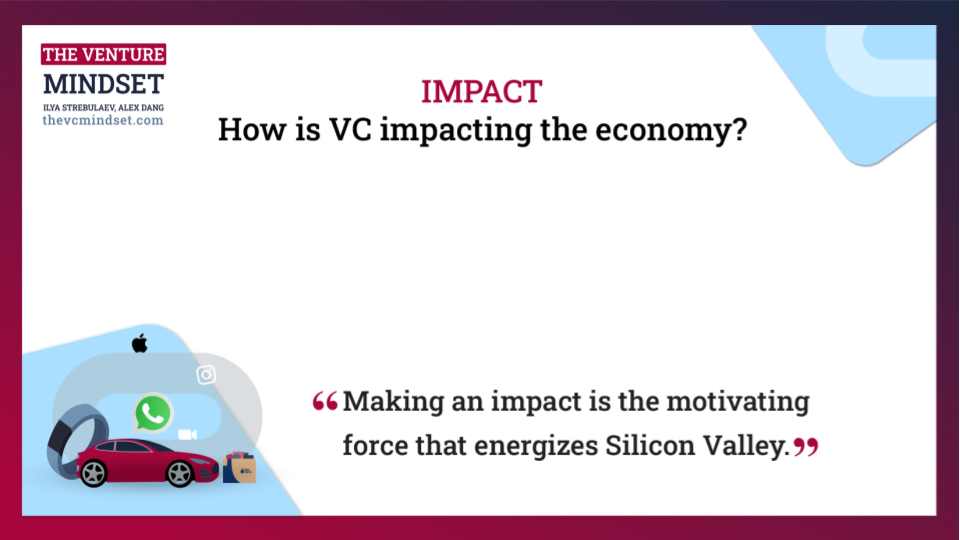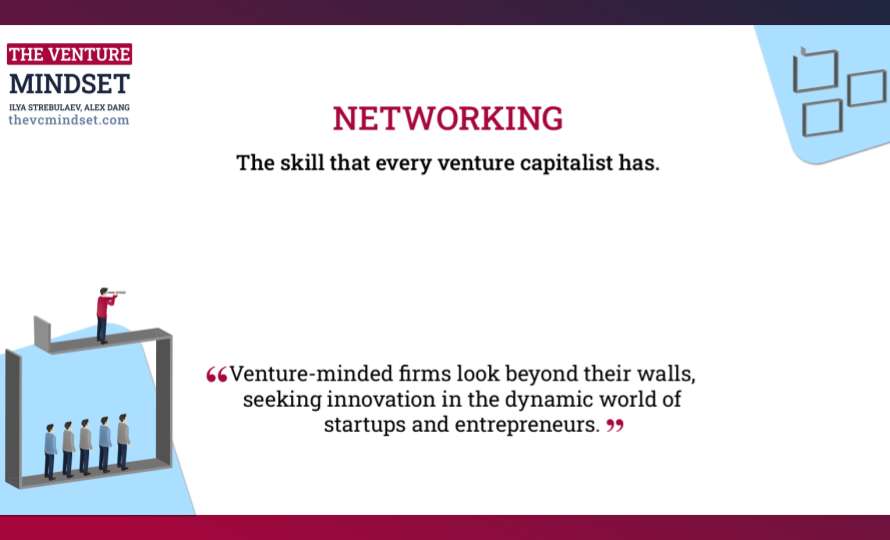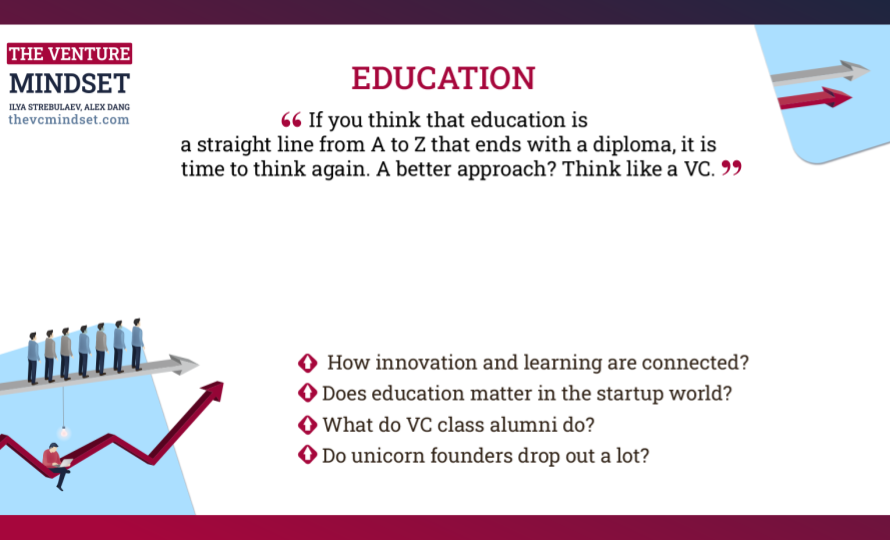“Hello, world!” We launch our newsletter with words familiar to first-time programming students. This is our first newsletter ever, so don’t judge us too hard. And send us tons of feedback so we can make it more useful to you.
Here is our plan. We will pick a single word or topic for each newsletter and will share thoughts, quotes, pieces of research, and materials from the Stanford VC class, all inspired by that word.
So, what is the word that comes to mind as we hit the virtual “send” button to ship our newsletter to followers of the Venture Mindset around the globe? What is the word that made us embark on this journey in the first place? What do we want to achieve with this newsletter, our LinkedIn posts, our articles, and our book? The answer is impact. Therefore, our first newsletter is about …
IMPACT
Making an impact is the motivating force that energizes Silicon Valley. The opportunity for impact is what brings students, entrepreneurs, and venture capitalists here. And over the past few decades, they have succeeded.
Our world is so different from what it was 15 to 25 years ago. A non-trivial chunk of the credit should go to VCs. VC-backed companies represent a significant share of the US economy and R&D spending, many great products affecting our lives would not be possible without VCs’ initial funding, and many of the changes would not be possible without people to whom making an impact often matters as much as the financial return on their investment.
Receive The Venture Mindset newsletter first. Subscribe now
1. On the Market
Venture investors are one of the most impactful investor groups in the world today, though their impact is often underestimated. Back in 2010, only two of the top 10 companies were VC-backed when they started out: Microsoft and Apple. By the first quarter of 2023, the number of VC-backed companies in the top 10 had increased to seven. A very similar and even steeper dynamic can be seen when one measures by market cap share. In 2010, the share attributable to VC-backed companies hovered around 20%, but by the first quarter of 2023, it had surged past the 80% mark. More details here.
2. On Innovation
Many products and services that surround us today weren’t even around just 15 years ago. Innovation is happening seamlessly without being noticed, often crushing many incumbents on its way. Innovation also happens faster than we think. How did our lives change so dramatically in such a short time? You can thank venture capitalists, the decision makers who had the ability to recognize the long-term advantages of thinking big. We often quote Amara’s law in our workshops: “We tend to overestimate the effect of a technology in the short run and underestimate the effect in the long run.” More details here.
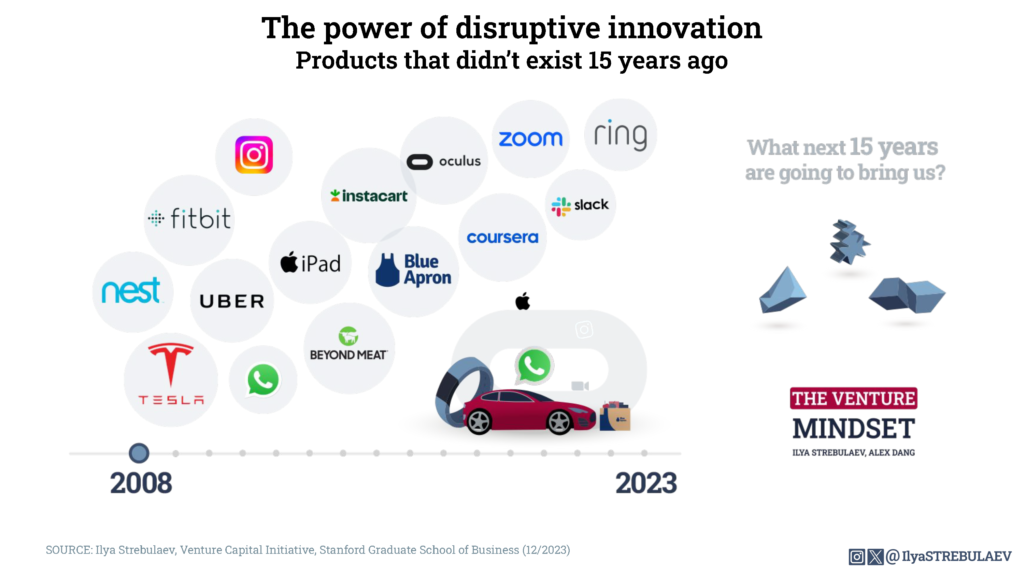
3. Quote of the Day

Ridesharing changed how we think about commuting. The impact is obvious today, but it could easily have been missed. The “private driver” reflex is a dangerous one as it may not let you see the needs of less fortunate customers who simply can’t afford the premium services available to Fortune 500 giants. This is why many investors underestimated the potential of Zoom. If your office is equipped with expensive videoconference hardware, why would you ever consider Zoom? If you have your own servers, why would you bother with cloud computing? If you have access to excellent healthcare, a video call with a doctor may seem like a nuisance. The “private driver” mindset may become a liability whenever a new business model or product pops up.
4. From the Classroom
“Finance 385: Angel and Venture Capital Financing for Entrepreneurs and Investors” is the title of Ilya’s class at Stanford. What should entrepreneurs know about “angels”? Who are they and what is their role and impact?
Angels are private investors who are typically interested in smaller deals. For many founders, they are the first ones to fund the startup, well before VCs come on the scene. Moreover, Ilya’s research suggests that angels are often interested not just in profit, but also in impact. When you raise capital from angels, don’t miss their non-financial needs, especially their desire for their money to make a positive impact on the world, in your pitch.
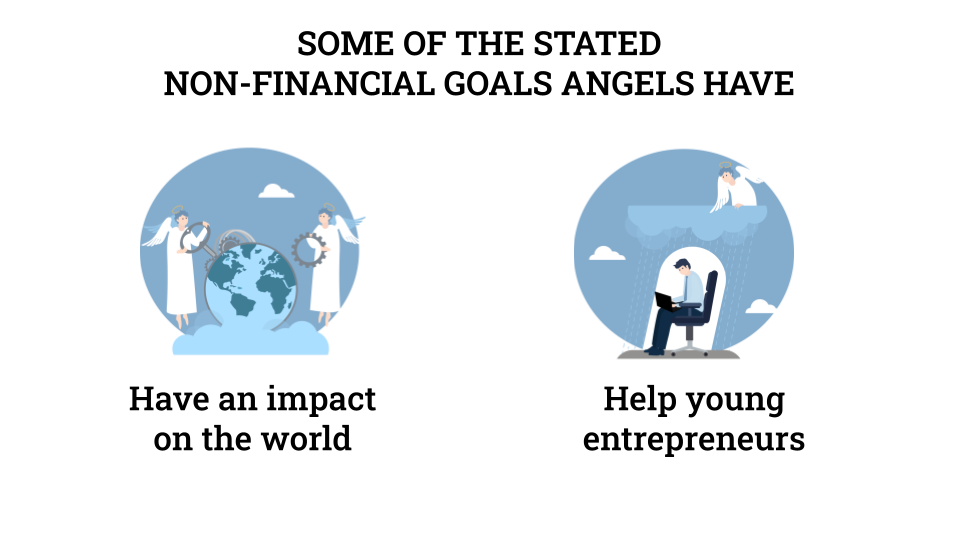
5. A peek into the book
We are both economists by education and we love numbers, but in the world of corporate innovation, “1” is often not equal to “1.” What we mean is that for early-stage initiatives in large, established organizations, it is harder to demonstrate significant impact. even if the actual amount of change is quite comparable to that achieved by a new and upcoming startup. Here is how we describe the situation in our book, The Venture Mindset (available for pre-order).
One thorny challenge at a large company is to link the contributions of individual employees to the company’s valuation. We call this problem a “1000 to 1001” challenge. In his bestseller Zero to One, the famed VC investor Peter Thiel described the challenges of a company that grows from nothing into a great something. Building a company from ground zero is hard, but the impact is clear. The value goes from nothing to, say, $1 billion, making the company a unicorn. But what if a team within a large company delivers the same billion-dollar impact? Their contribution is diluted across a large existing business. This is a “1000 to 1001” issue. The impact is the same or perhaps even larger, but the reward is often disproportionally smaller, causing talented employees to leave.
A final thought
Impact is subjective. It is not easily measured in dollars, the number of users, or a net promotion score. However, we know that impact matters when we receive emails from former students or workshop participants, telling us how the guidance they received from us impacted their lives. It may happen days or years after we met them, but each such message warms our hearts.
Share this newsletter with your friends and colleagues who might find it useful—in doing so, you too may have a lasting impact.
Stay venture-minded!
Ilya Strebulaev and Alex Dang


